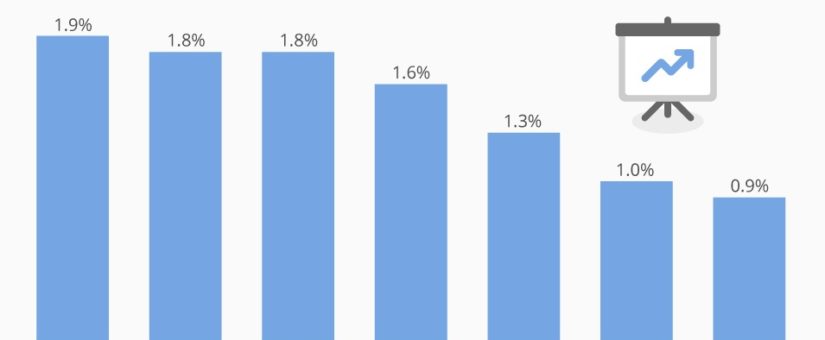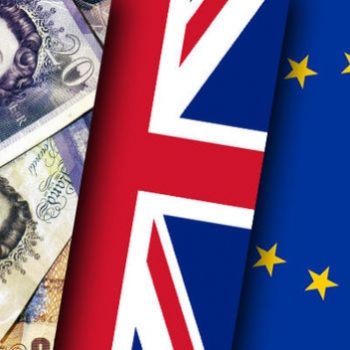
THE IMPACT OF BREXIT ON THE EU AND GERMANYS DOMINATION
Brexit is a historical and world changing event and from now on the narrative will be one of disintegration not integration or togetherness.
We predict that the Brexit is set decrease those forces in the EU that favour greater integration. Germany will be more dominant hence why the EU politicians are so horrified by the prospect of Brexit
while British is set face a lengthy and difficult negotiation for a new relationship – probably along lines of the ‘Canadian model’.
Marine Le Pen said, “if the UK voted to leave the EU, it would be the equivalent of the Berlin Wall falling in 1989. She was right”
Brexit involves disintegration of Europe and a more dominant German. It doesn’t mean that the EU will fall apart, or even the disintegration of other country, which is highly unlikely in the foreseeable future. However, the centrist politicians who run nearly every EU member-state will henceforth be on the defensive against the populist forces who oppose them and the EU.
Currently, they are two competing approaches to the future of Europe. The European Commission, led by President Jean-Claude Juncker supports in further integration. It generally seeks to respond to crises by pressing member-states to accept ‘European’ solutions that involve extra powers for EU institutions. The Commission does not seek to grab power in a cynical way – it genuinely believes that many problems require ‘more Europe’. And sometimes it is right.
However, the President of the European Council, Donald Tusk, has followed the different line and warned that more centralisation would turn citizens against the EU. “Obsessed with the idea of instant and total integration, we failed to notice that ordinary people, the citizens of Europe, do not share our Euro-enthusiasm,” he said. Tusk also cited comments by Hubert Védrine, the former French foreign minister: “You see governments and parties all over, jumping up and down asking for ‘more Europe, more Europe’. If you want people to massively reject Europe, just keep on.” A few days ago, Wolfgang Schäuble, the German finance minister, chipped in, criticising the “excessive level of self-regard in the institutions in Brussels and Luxembourg …to some extent [we] lost contact with our citizens.”
The British and EU would have about two years to negotiate all affected issues including the following six points.
1. EU immigration: The British does not want to continue allowing unlimited EU immigration.
2. EU and UK Visas: The two sides must guarantee the status of EU members living in the UK, and vice-versa. The same applies to work visas, which are not currently required.
3. European Court: The British wants to withdraw from the European Court of Judgment.
4. The British wants a “customs union” with the EU. That means they will not impose tariffs on each other’s’ imports and impose common tariffs on imports from other countries.
5. Trading: Both sides want to continue to trade.
6. Cash settlement: The EU will require a cash settlement from the UK to meet existing financial commitments. Recent negotiations put the figure at 40 billion to 55 billion euros.
The withdrawal plan must be approved the European Council, the 20 EU countries with 65 percent of the population, and the European Parliament. Then cash settlement will copy the EU laws into its own laws, which can then be amended or repealed.
Germany the dominant country in the EU was enhanded by France’s weakness and the UK’s semi-detached status. On issues such as the eurozone crisis, refugees and the war in Ukraine, Germany has determined the EU’s response. Fears of even greater German dominance explain why politicians in Rome, Paris and Warsaw are so horrified by the prospect of Brexit.
The Germans themselves are particularly unhappy and somehow excited about Brexit, because they worry that other EU countries – now even more anxious about German dominance – may be tempted to form an alliance against them. The Germans have seen the British as allies for the causes of economic liberalism and smaller EU budgets.
‘Canada option’, or a free trade agreement (FTA) supports free movement in the UK following the political toxicity. Also, the new prime minister will probably prefer this option and that would give very limited access to the single market and be particularly painful to the City of London: an FTA would not allow the ‘passporting’ system whereby a bank regulated in London is free to do business across the EU, without the need to be regulated by anyone else. Some foreign banks in the City are already planning to move significant numbers of staff to Frankfurt, Paris, Luxembourg or Dublin.
European leaders will have an interest in ensuring that the EU maintains a close economic relationship with the UK, for everyone’s benefit. But they will not compromise on fundamental principles, such as free movement of labour, as the price for single market access. And they will not want the exit talks to be pain-free, easy or pleasant for the British, since they wish to deter others from following the UK’s example.
The director of the Centre for European Reform is Charles Grant.
- Posted by admin
- On December 28, 2017
- 0 Comments




0 Comments